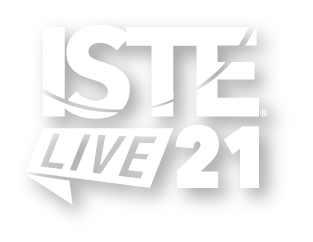

No Devices? No Problem! K-2 Unplugged Coding Camp for Computational Thinking |
Listen and learn : Snapshot
Kailey Rhodes
This pre-K-5 coding camp invites students to explore computational thinking without logging more screen time. Crack binary secret messages, choreograph "loopy dances" and get silly with robot mazes! With an optional, complementary Scratch programming track, campers become lifelong problem-solvers, computational thinkers and coders.
| Audience: | Curriculum/district specialists, Library media specialists, Teachers |
| Skill level: | Beginner |
| Attendee devices: | Devices useful |
| Attendee device specification: | Smartphone: Android, iOS, Windows Laptop: Chromebook, Mac, PC Tablet: Android, iOS, Windows |
| Topic: | Innovation in early childhood/elementary |
| Grade level: | PK-2 |
| Subject area: | Computer science, STEM/STEAM |
| ISTE Standards: | For Educators: Facilitator
Digital Citizen
|
We will overview the (seemingly impossible!) creative process of innovating a coding camp that is not only for our youngest learners (Pre-K-5), but is also free of devices. In the richly-populated field of coding curriculum and technology, educators aren't short on choices of games, devices, programs, apps, or websites that "teach coding." These offerings represent a cost consideration, an age-level appropriateness, accessibility to wifi, and most importantly, they ask our youngest students to spend even more time in front of a screen. How could we create a coding camp that was still "camp" in many senses of the word, with outdoors time and a culminating talent show? We embarked on a journey to create low-floor, high-ceiling activities that educators can easily facilitate and all learners can engage—and just as importantly, can include components that continue at home, because they are unplugged.
Introduction (5-10 mins)
- The Challenge: how do you create a coding experience without adding more screen time? By diving deep into the foundations of coding itself.
-Overview of coding learning objectives: critical thinking, algorithms, sequencing, replicability, problem solving, and the low-stakes pursuit of failure
- Introductions to our team and our process
Invitation 1 (10-15 mins)
- Try one of the earlier activities: Binary Secret Messages or Crack the Code Walk
- Share: in what ways did this unplugged activity support learning objectives we established?
Coding Camp Structure (15 mins)
- Overview of the structure of the camp
- Sharing some of our field test findings
- How the learning extends beyond camp and back home
Invitation 2 (10 mins)
- Try another activity that occurs later in the camp: Epic Events or If/Then Games
- Turn-and-talk about how you would modify this activity in your classroom, whether in the curriculum, after school, during a camp itself, or even as a P.E. class!
Closing (5 mins)
- How to get more information about the camp
- How to continue thinking of even more activities that support young learners' computational thinking
- Questions
CS Unplugged: Resources for Students, Educators, and Parents that explore and celebrate coding without a computer https://csunplugged.org/en/
Research Study, The Effectiveness of an Unplugged Coding Education System that Enables Coding Education without Computers https://bit.ly/3ieHMaa

As a middle school teacher, Kailey is passionate about pursuing educational solutions that keep students at the forefront of their learning experience. She believes esports are the future, and we only do a disservice to the students we serve by denying an exciting new way for them to belong. Kailey teaches 6th grade mathematics at a nearby arts school, where students spend just as much time in academic subjects as arts classes. Her involvement in Portland's theatre scene permits a deeper level of engagement with students as they explore where these two worlds intersect.
2, 4, 6, 8! How Can We Collaborate?
Empowering the Littles! Creating Effective Learning Opportunities for K-2 Learners
Tuesday Mainstage